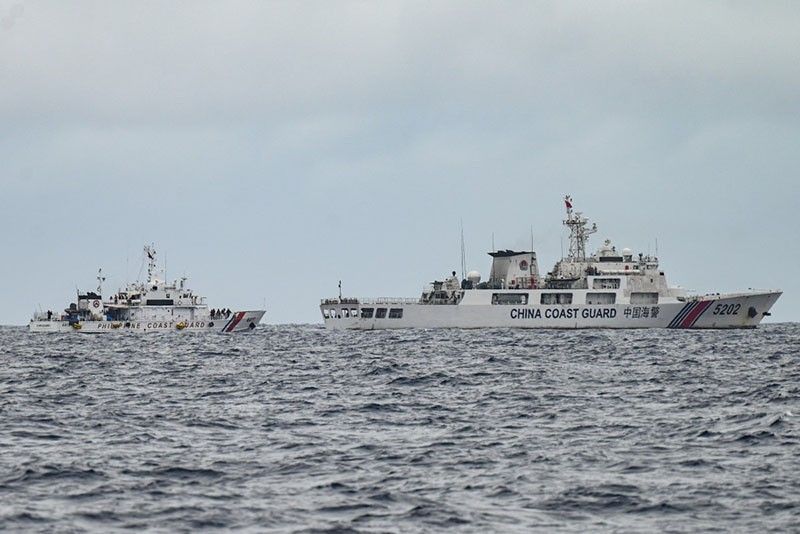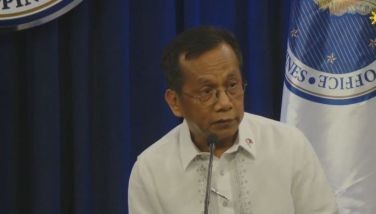Philippines defines its sea routes to defend interests

MANILA, Philippines — President Ferdinand Marcos on Friday signed laws defining the country's sea waters and imposing fixed lanes for foreign ships, sparking a sharp riposte by China which summoned Manila's envoy.
The Maritime Zones Act marks out waters that fall within Manila's territory as well as areas outside of it to which it has maritime entitlements, as agreed by the UN Convention on the Law of the Sea.
They include some waters contested by China, which claims most of the South China Sea including areas close to the shores of the Philippines.
A second law, the Archipelagic Sea Lanes Act, authorizes the president to impose fixed sea and air routes through which foreign ships or planes may pass "without compromising our national security", Marcos said at the signing ceremony.
"By defining and asserting our maritime zones, we project to the international community that we are staunchly committed to nurturing, cultivating and protecting our maritime domain," he said.
It ensures that "all Filipinos can rightfully enjoy the riches of our seas," Marcos added.
The foreign affairs committee of China's top legislature body, the National People's Congress, expressed its "strong condemnation" of the "so-called" laws, which it said were a "serious infringement upon China's territorial sovereignty and maritime rights", according to state media.
China's foreign ministry summoned the Philippine ambassador to Beijing "to lodge solemn representations" over the passage of the laws.
"China strongly condemns and firmly opposes this," foreign ministry spokeswoman Mao Ning told reporters in Beijing.
"Should the Philippines take any infringing or provocative actions in the South China Sea based on this law, China will respond resolutely," Mao said.
'Tensions not instantly diluted'
The Philippine foreign ministry did not immediately comment on the Chinese action.
Beijing has brushed aside an international ruling that its claims to most of the South China Sea has no legal basis.
In recent months, it has deployed navy and coast guard vessels to bar the Philippines from reefs and islands that Manila says are located within its exclusive economic zone in the sea.
Philippine Senator Francis Tolentino, chairman of the Senate Special Committee on Maritime and Admiralty Zones, said tensions "will not instantly be diluted" with the laws.
But he told reporters that he believes they would "really fortify our sovereignty as an independent republic".
Under the second Philippine law, foreign ships and aircraft exercising the right of archipelagic sea lanes passage "shall not engage in threat or use of force against the sovereignty, territorial integrity, or political independence" of the Philippines.
It also forbids the foreign vessels from fishing, conducting war games, intelligence-gathering, surveillance, research, making "covert transmissions", or interfering with telecommunications systems.
Ship masters or plane captains face up to two years in prison and fines of up to 1.2 million US dollars for violating the law, which Tolentino said must be approved first by the International Maritime Organization to take effect.
- Latest
- Trending




























